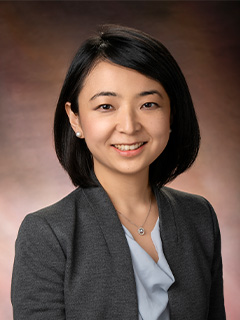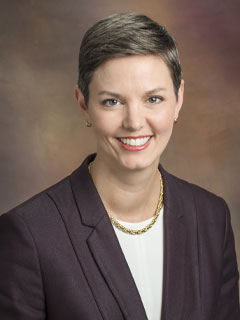HOW CAN WE HELP YOU? Call 1-800-TRY-CHOP
In This Section
Three CHOP Researchers Receive Doris Duke Foundation Research Awards

Three scientists at Children's Hospital of Philadelphia are recipients of Doris Duke Foundation Awards.
shafere1 [at] chop.edu (By Emily Shafer)
Three researchers at Children's Hospital of Philadelphia received awards from the Doris Duke Foundation to study novel ways to approach childhood leukemia and to understand more about malaria.
Two early career researchers, Anand Bhagwat, MD, PhD, and Kaoru Takasaki, MD, received awards for early career physician-scientists that provide mentored research funding and time protection.
Audrey Odom John, MD, PhD, chief of the Division of Infectious Diseases at CHOP, received the Doris Duke Foundation Paragon Award for Research Excellence, a one-time recognition for physician-scientists who have significantly advanced knowledge toward the prevention, diagnosis, and treatment of human disease.
The mission of the Doris Duke Foundation is to build a more creative, equitable and sustainable future by investing in artists and the performing arts, environmental conservation, medical research, child well-being and greater mutual understanding among diverse communities. To learn more, visit www.dorisduke.org.
Dr. Bhagwat a hematology/oncology fellow, is researching the effectiveness of chimeric antigen receptor (CAR) T-cell therapy in acute myeloid leukemia (AML). Dr. Takasaki, an attending physician at CHOP and an instructor of Hematology in the Perelman School of Medicine at the University of Pennsylvania, is focused on the interaction of mutations that may lead to leukemia in patients with Trisomy 21, or Down syndrome.
"This award provides critical funding that allows me to continue building my career," Dr. Takasaki said. "It also connects me to a network of highly talented and motivated scientists who align with the Doris Duke Foundation's mission to support 'the well-being of people and the planet for a more creative, equitable and sustainable future.' This inspires me to push through the setbacks and negative results in the laboratory toward the larger goal of improving healthcare for children."

Kaoru Takasaki, MD
Teasing Out Gene Changes
Dr. Takasaki studies abnormal blood development in children with Down syndrome, who are at increased risk for leukemia. Transient abnormal myelopoiesis (TAM) is a leukemia-like condition that occurs in about 10% of infants with Down syndrome. The condition is linked to a genetic interaction between the third copy of chromosome 21 and a mutation in GATA1, a protein that is important for normal blood cell production.
Approximately 25% of infants who had TAM will subsequently develop myeloid leukemia of Down syndrome. Dr. Takasaki's study focuses on how mutations in the gene STAG2 affect early blood development, particularly megakaryocyte development, when combined with Trisomy 21 and mutated GATA1. She uses isogenic induced pluripotent stem cells that originated from patients who had TAM to isolate the changes that occur when STAG2 is mutated.
Dr. Takasaki's clinical exposure to this patient population as a fellow at CHOP contributed to her interest in this area of research. She also credits her mentor, Stella T. Chou, MD, chief of the Division of Transfusion Medicine and attending physician in the Division of Hematology, for fostering her research interests.
"Having the network of resources and the mentorship I have at CHOP will be instrumental in helping me complete this project," Dr. Takasaki said.

Anand Bhagwat, MD, PhD
Improving Therapy in AML
One of Dr. Bhagwat's goals is to translate the success that CAR T-cell therapy has had in pediatric acute lymphoblastic leukemia to pediatric AML. So far, that success has been elusive, and Dr. Bhagwat's project focuses on finding out why.
"CAR T-cell therapy has been transformative for other types of leukemia, but it hasn't yet been successful for pediatric AML," Dr. Bhagwat said. "It also has demonstrated success in cell culture models and mouse models of AML. There's a gap in understanding why it doesn't work in patients yet, and we are trying to shine a light on that gap and understand why it exists."
Dr. Bhagwat has analyzed adult patient data to identify patients who did not respond to CAR T-cell therapy and hypothesizes that cytokine release syndrome — which is a potential side effect of CAR T-cell therapy associated with a significant increase in cytokine production that can make a patient very ill — appears to play a role. The goal of his research is to identify ways to prevent the side effects and incorporate those prevention methods into clinical trials to prevent CAR T-cell therapy resistance.
As Dr. Bhagwat moves further along the hematology/oncology fellowship at CHOP, he appreciates the many structures in place to help develop his research career.
"I love taking care of kids, and it's been exciting to treat patients," Dr. Bhagwat said, "but I also enjoy taking problems that arise back to the lab to figure out those problems."
Drs. Takasaki and Bhagwat are among 21 early career physician-scientists throughout the country selected by the Doris Duke Foundation to advance their clinically significant research.

Audrey Odom John, MD, PhD
Tackling Pediatric Infections
Dr. John, professor of Pediatrics at the University of Pennsylvania Perelman School of Medicine, is a previous recipient the Doris Duke Foundation's Clinical Scientist Development Award; the Paragon Award is given to past recipients due to their accomplishments in their studies.
The Paragon Award for Research Excellence is a one-time recognition that celebrates physician scientists who have significantly advanced knowledge toward the prevention, diagnosis and treatment of human disease or who have, through their professional contributions, improved health outcomes of patients today. The Award is anchored in the conviction that to impact clinical outcomes, we need innovation on many fronts, the dedication of many to mentoring and the cultivation of promising ideas. Honorees, who are past recipients of the Doris Duke Foundation’s Clinical Scientist Development Award, were selected based on their proven accomplishments in one of the following categories: outstanding contributions to their field of study; impactful developments in disease diagnosis, treatment or prevention; and innovative improvements to clinical care or healthcare delivery.
The John Lab investigates new therapies and diagnostics for pediatric infections, with emphasis on malaria. Dr. John and her team evaluate the fundamental biology and regulation of metabolism in Plasmodium falciparum, the parasite that causes malaria. In addition, Dr. John seeks to identify potential therapeutics for infectious diseases, including malaria and staphylococcal infections, and identify volatile biomarkers of infectious diseases.
Dr. John's team has found that volatile compounds in breath convey information about the state of the body and the diseases that might be present; for example, they can diagnose malaria and SARS-CoV-2 infection from breath metabolites alone. Her goal is to one day be able to analyze a simple, noninvasive breath sample to diagnose a host of pediatric infectious and noninfectious diseases.
"It's an incredible honor to receive this Paragon award from the Doris Duke Charitable Foundation," Dr. John said. "They have been heroes in supporting the physician-scientist pipeline and were instrumental in getting my own independent career off the ground."